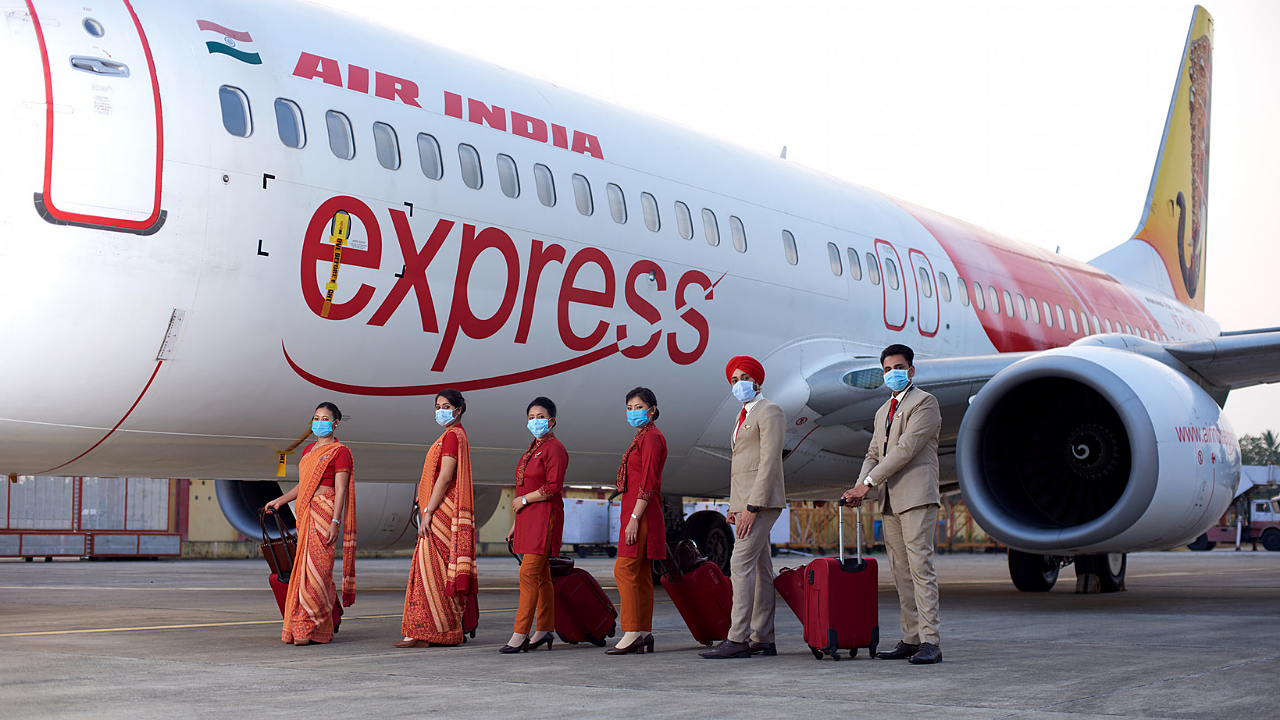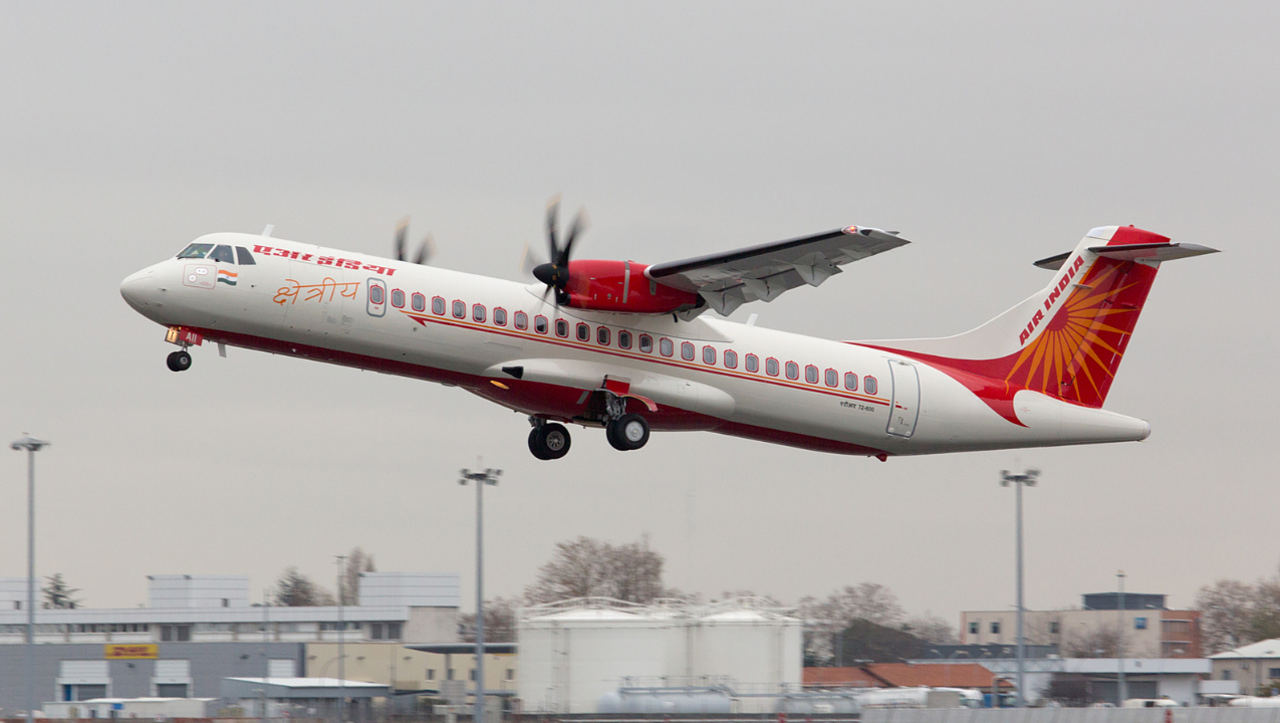
The Government of India (GoI) remains committed to the disinvestment of loss-making flag carrier Air India (AI), despite a highly challenging aviation environment due to the ongoing COVID-19 crisis.
Having accumulated losses of about INR 60,000 crore with AI till date, the GoI is expected to make its long-overdue exit from the airline by next year.
Despite a less than ideal market situation, the Tata Group and SpiceJet have emerged as bidders. Both bidders, however, will have to contend with operating AI in a loss-making market environment. Aviation advisory firm CAPA India states that Indian carriers are expected to lose $ 4.1 billion in 2022, taking combined losses across FY22 to $8 billion. Since 2007, close to $ 27 billion in combined losses have been posted by Indian carriers.
Tough ask
In reply to Parliament this month, Minister of State of Civil Aviation Gen VK Singh stated that financial bids are likely to be received by September 30, 2021. The Transaction Advisor had shared the Request for Proposal (RFP) along with the draft Share Purchase Agreement (SPA) with the selected Qualified Interested Bidders (QIB) on March 30 for submission of financial bids. The Preliminary Information Memorandum (PIM) inviting Expressions of Interest (EOI) for the GoI’s strategic disinvestment of its 100% stake in AI along with 100% stake in Air India Express and 50% stake in Air India SATS was issued on January 27, 2020.
AI has the following wholly-owned subsidiaries: AI Airport Services, Air India Express, AI Engineering Services and Alliance Air Aviation, while AISATS Airport Services is a 50:50 JV between Air India and Singapore Airport Terminal Services (SATS). AI also holds 80.38% equity shares of Hotel Corporation of India. The consolidated net loss of AI and its subsidiaries in 2019-20 stood at INR 7,693.37 crore compared to the previous year’s loss of INR 8,880.22 crore. A Special Purpose Vehicle - Air India Assets Holding (AIAH) has been set up for warehousing non-core assets of Air India. The sales of these non-core assets will be used to offset the debt of Air India transferred to AIAH.
AI’s successful disinvestment will be a significant victory for the government, considering the complexity and the current aviation market environment. The winning bidder will also need to cater to the fact that India’s civil aviation market is expected to recover to 2019 levels only by 2024 at the earliest, with domestic markets recovering faster than international sectors. Despite the availability of several vaccines against COVID-19, new outbreaks and mutations of the disease have dashed hopes of a quick recovery in global air travel. Culling AI’s large workforce (9041 permanent employees as of March 31, 2020) could also present problems for the winning bidder.
AI’s bidders also appear to have not been swayed by lawsuits filed by Cairn Energy and Devas Multimedia in the United States District Court for the Southern District of New York, seeking claims on the airline’s assets against arbitration awards won against the GoI. Despite the government claiming that there is no likely impact of the lawsuits on the ongoing disinvestment process, the suitors for the airline will require more due diligence on the deal to protect themselves against such claims.

Promising possibilities
AI’s bidders are primarily eyeing its long haul operations, where there has also been a vacuum following the implosion of Jet Airways in early 2019. AI’s direct long-distance connections to the USA and countries such as UK and Australia remain highly sought after, while its low-cost offerings in Air India Express and Alliance Air also offer future growth possibilities. Air India has been operating flights under ‘Bubble’ agreements with 22 countries to serve 3rd/4th freedom markets. (Note: definition at the end of the article). However, scheduled international flights to/from India have not resumed since their suspension on March 22, 2020, and these restrictions will remain in force till July 31.
AI launched new non-stop flights to Delhi-Toronto, Mumbai-Kuwait, Delhi-Doha, Delhi-Seoul and Mumbai-Nairobi in FY20, in addition to adding capacity to Heathrow & Stansted airports in the UK while adding flights from Amritsar. Before the pandemic, the airline also started operating more direct flights from interior points in India to connect Dubai. AI’s STAR Alliance membership also gives it code-share alliances with 14 STAR carriers - Lufthansa, Austrian Airlines, Swiss, Ethiopian Airlines, Singapore Airlines, Turkish Airlines, Egypt Air, Asiana Airlines, Air Canada, EVA Air, Croatia Airlines, TAP Portugal, LOT Polish Airlines and Avianca. It also has code-share agreements with 11 Non-STAR Carriers.
Potential bidders will also be encouraged by AIXL’s performance, with the Low Cost Carrier (LCC) having achieved its highest net profit of INR 412 crore in FY20, its fifth consecutive year of profits. AIXL Express carried 48.4 lakh passengers in FY20 compared to 43.6 lakh passengers the previous year (a growth of 11%). This included 46.6 lakh passengers who travelled on AI’s international sectors. The LCC also achieved its highest ever daily average aircraft utilisation at 13.4 hours per day across the fleet of 25 Boeing 737-800 NG aircraft (including eight on lease).
Alliance Air which started operations in April 1996, provides connectivity to Tier II & Tier III cities with its fleet of 18 ATR 72-600 turboprop Regional Transport Aircraft (RTA). The airline inducted its first ATR aircraft in January 2003. Alliance Air has also been awarded 95 routes as part of the “Ude Deshka Aam Nagrik” (UDAN) Regional Connectivity Scheme. With its ability to stimulate traffic on regional routes connecting Tier-II/III cities, Alliance Air could emerge as a leader in the regional transport market.
Note: Third Freedom of The Air - the right or privilege, in respect of scheduled international air services, granted by one State to another State to put down, in the territory of the first State, traffic coming from the home State of the carrier (also known as a Third Freedom Right).
Fourth Freedom of The Air - the right or privilege, in respect of scheduled international air services, granted by one State to another State to take on, in the territory of the First State, traffic destined for the home State of the carrier (also known as a Fourth Freedom Right).